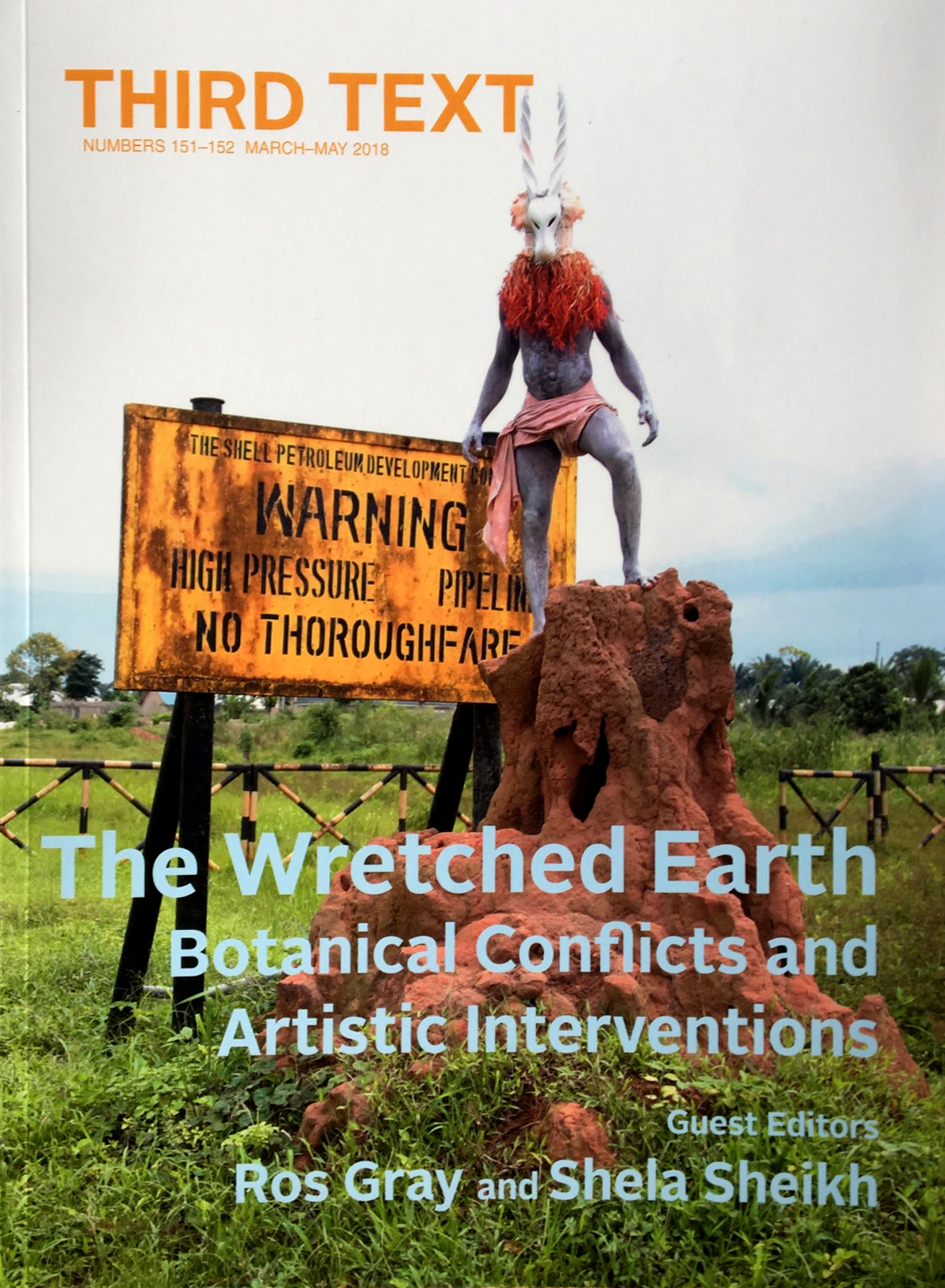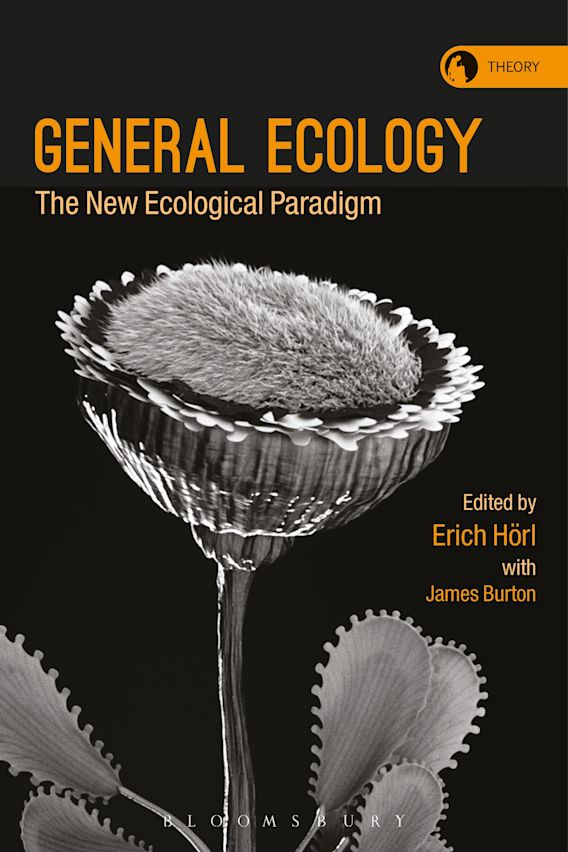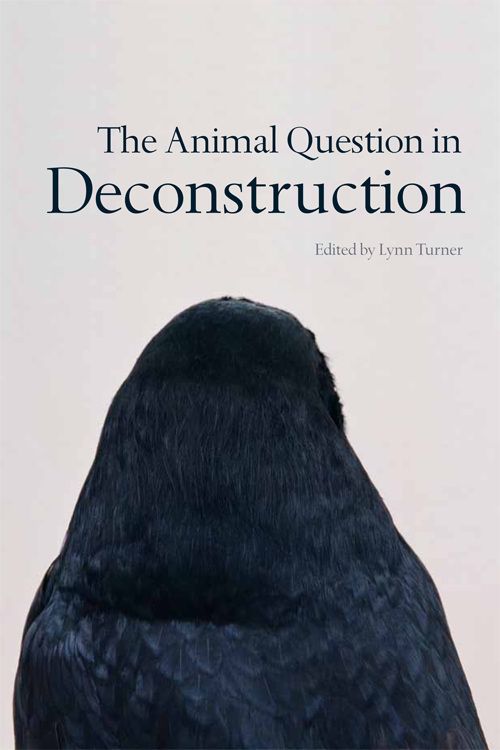PUBLICATIONS
︎︎︎
Scroll to view books and journals relating to ecology produced by our members

Wood Roberdeau, “Experiments in Eco-poiesis: herman de vries and and Art of Immediacy” in The Anthropocene Laboratory. eds. Fröydi Laszlo and Anna Risell, Gothenburg: Förlaget 284, 2023
This book is a kaleidoscopic vision of a strange time, where our only choice is generously sharing knowledge to inspire a positive change for our threatened Earth. The more than 20 different participants in this book come from both the scenic and the visual arts and academics from the humanities and the natural sciences. The languages of the book are both Nordic and English, translated to fit both English and Nordic readers. In this chapter, Wood seeks to determine how de vries’s definition of ‘art’ continues to inform the challenges facing a human and more than human set of co-produced proximities and direct entanglements, the testimony or witnessing of which proves a positive environmental relationality within this ‘lab’ that some have called the Anthropocene.
This book is a kaleidoscopic vision of a strange time, where our only choice is generously sharing knowledge to inspire a positive change for our threatened Earth. The more than 20 different participants in this book come from both the scenic and the visual arts and academics from the humanities and the natural sciences. The languages of the book are both Nordic and English, translated to fit both English and Nordic readers. In this chapter, Wood seeks to determine how de vries’s definition of ‘art’ continues to inform the challenges facing a human and more than human set of co-produced proximities and direct entanglements, the testimony or witnessing of which proves a positive environmental relationality within this ‘lab’ that some have called the Anthropocene.

Benek Cincik and Tiago Torres-Campos, eds. Postcards from the Anthropocene: Unsettling the Geopolitics of Representation, Barcelona: dpr-barcelona, 2022
This book includes various responses to the geopolitical conditions of our tangent times through collections of visual materials and theoretical explorations with critical positionings. The book expands on the Anthropocene theory by exploring its relations with the aesthetic concerns in contemporary representations through their geopolitical ramifications. We conceptualize postcards as documentary space-time snapshots, which convey complex assemblages of dynamic, non-linear, unpredictable, ad-hoc networks between interdependent and transcalar actors in deep time. The postcards we assemble raise questions about the ethical and political challenges of the dominant modes of technoscientific knowledge production, modes that are constituted through existing power relationships, subject positions, and differences, and that perpetuate current inequalities. They catalyse speculative and creative geopolitical imaginaries and collective subjectivities that recalibrate existing value systems and indicate alternatives.
Contributions from Ifor Duncan, Wood Roberdeau, Susan Schuppli
This book includes various responses to the geopolitical conditions of our tangent times through collections of visual materials and theoretical explorations with critical positionings. The book expands on the Anthropocene theory by exploring its relations with the aesthetic concerns in contemporary representations through their geopolitical ramifications. We conceptualize postcards as documentary space-time snapshots, which convey complex assemblages of dynamic, non-linear, unpredictable, ad-hoc networks between interdependent and transcalar actors in deep time. The postcards we assemble raise questions about the ethical and political challenges of the dominant modes of technoscientific knowledge production, modes that are constituted through existing power relationships, subject positions, and differences, and that perpetuate current inequalities. They catalyse speculative and creative geopolitical imaginaries and collective subjectivities that recalibrate existing value systems and indicate alternatives.
Contributions from Ifor Duncan, Wood Roberdeau, Susan Schuppli

Susan Schuppli, Material Witness: Media, Forensics, Evidence. MIT Press 2020
This book introduces a new operative concept: material witness, an exploration of the evidential role of matter as both registering external events and exposing the practices and procedures that enable matter to bear witness. Organized in the format of a trial, Material Witness moves through a series of cases that provide insight into the ways in which materials become contested agents of dispute around which stake holders gather. These cases include an extraordinary videotape documenting the massacre at Izbica, Kosovo, used as war crimes evidence against Slobodan Milošević; the telephonic transmission of an iconic photograph of a South Vietnamese girl fleeing an accidental napalm attack; radioactive contamination discovered in Canada’s coastal waters five years after the accident at Fukushima Daiichi; and the ecological media or “disaster film” produced by the Deep Water Horizon oil spill in the Gulf of Mexico. Each highlights the degree to which a rearrangement of matter exposes the contingency of witnessing, raising questions about what can be known in relationship to that which is seen or sensed, about who or what is able to bestow meaning onto things, and about whose stories will be heeded or dismissed.
This book introduces a new operative concept: material witness, an exploration of the evidential role of matter as both registering external events and exposing the practices and procedures that enable matter to bear witness. Organized in the format of a trial, Material Witness moves through a series of cases that provide insight into the ways in which materials become contested agents of dispute around which stake holders gather. These cases include an extraordinary videotape documenting the massacre at Izbica, Kosovo, used as war crimes evidence against Slobodan Milošević; the telephonic transmission of an iconic photograph of a South Vietnamese girl fleeing an accidental napalm attack; radioactive contamination discovered in Canada’s coastal waters five years after the accident at Fukushima Daiichi; and the ecological media or “disaster film” produced by the Deep Water Horizon oil spill in the Gulf of Mexico. Each highlights the degree to which a rearrangement of matter exposes the contingency of witnessing, raising questions about what can be known in relationship to that which is seen or sensed, about who or what is able to bestow meaning onto things, and about whose stories will be heeded or dismissed.

The Edinburgh Companion to Animal Studies
Edited by Lynn Turner, Undine Sellbach, Ron Broglio, Edinburgh Press, 2019
Edited by Lynn Turner, Undine Sellbach, Ron Broglio, Edinburgh Press, 2019
This volume critically investigates current topics and disciplines that are affected, enriched or put into dispute by the burgeoning scholarship on Animal Studies. What new questions and modes of research need come into play if we are to seriously acknowledge our entanglements with other animals? World-leading scholars from a range of disciplines, including Literature, Philosophy, Art, Biosemiotics, and Geography, set the agenda for Animal Studies today. Rather than a narrow specialism, the 35 newly commissioned essays in this book show how we think of other animals to be intrinsic to fields as major as ethics, economies as widespread as capitalism and relations as common as friendship. The volume contains original, cutting-edge research and opens up new methods, alignments, directions as well as challenges for the future of Animal Studies. Uniquely, the chapters each focus on a single topic, from ‘Abjection’ to ‘Voice’ and from ‘Affection’ to ‘Technology’, thus embedding the animal question as central to contemporary concerns across a wide range of disciplines.

The Wretched Earth: Botanical Conflicts and Artistic Interventions
Edited by Ros Gray and Shela Sheikh, Third Text, March-May 2018
This special issue presents new research on, and in some cases generated through, contemporary art practices that both explore and intervene in the cultures, politics and systems of representation, as well as their attendant desires and violences, generated through human interaction with the soil. Our proposition is that, in order to do full justice to Fanon’s diagnosis of ‘the wretched of the earth’, we must understand more deeply the extent to which this is due to the fact that the earth itself is wretched, and that part of this condition has been the destruction of ‘ecological’ relations with the earth. The phrase ‘the wretched earth’ signals our ongoing engagement with anti-colonial and anti-imperialist writers such as Fanon, but also the need to go beyond their reconfigured humanism to think about the multiple human and nonhuman cohabitations that constitute the soil and, more broadly, our more-than-human commons.
Edited by Ros Gray and Shela Sheikh, Third Text, March-May 2018
This special issue presents new research on, and in some cases generated through, contemporary art practices that both explore and intervene in the cultures, politics and systems of representation, as well as their attendant desires and violences, generated through human interaction with the soil. Our proposition is that, in order to do full justice to Fanon’s diagnosis of ‘the wretched of the earth’, we must understand more deeply the extent to which this is due to the fact that the earth itself is wretched, and that part of this condition has been the destruction of ‘ecological’ relations with the earth. The phrase ‘the wretched earth’ signals our ongoing engagement with anti-colonial and anti-imperialist writers such as Fanon, but also the need to go beyond their reconfigured humanism to think about the multiple human and nonhuman cohabitations that constitute the soil and, more broadly, our more-than-human commons.

Wood Roberdeau. “After Baruchello: Agricultural Encounters in Contemporary Art” in Rurality Re-imagined: Villagers, Farmers, Wanderers, Wild Things, ed. Ben Stringer, San Francisco: Applied Research and Design Publishing, 2018
This chapter identifies a cultural turn towards political ecology, in the sense that Bruno Latour defines it, primarily due to the contentiousness within pre-established categories of art (or artifice) and nature (as a site of labour and perseverance). Following ‘the ecological thought’ of Timothy Morton via Arthur Schopenhauer’s problematic claim that art provides an escape route from reality to a space-time of pure ‘knowledge’, the chapter addresses selected agricultural art projects by John Gerrard, Gianfranco Baruchello, Atelier Van Lieshout, Futurefarmers and Fernando García-Dory. Considering Morton’s observation that the essentialism we sometimes afford to an artwork is exactly what might help to deconstruct our delusions surrounding the nature/culture dichotomy, I argue this ‘non-knowledge’ is grounded in ‘ecomaterialism’, ‘postmedievalism’, and ‘uncivilization’ in order to think a reconfiguration of the limits of the everyday, the urban, and the rural for the Anthropocene.
This chapter identifies a cultural turn towards political ecology, in the sense that Bruno Latour defines it, primarily due to the contentiousness within pre-established categories of art (or artifice) and nature (as a site of labour and perseverance). Following ‘the ecological thought’ of Timothy Morton via Arthur Schopenhauer’s problematic claim that art provides an escape route from reality to a space-time of pure ‘knowledge’, the chapter addresses selected agricultural art projects by John Gerrard, Gianfranco Baruchello, Atelier Van Lieshout, Futurefarmers and Fernando García-Dory. Considering Morton’s observation that the essentialism we sometimes afford to an artwork is exactly what might help to deconstruct our delusions surrounding the nature/culture dichotomy, I argue this ‘non-knowledge’ is grounded in ‘ecomaterialism’, ‘postmedievalism’, and ‘uncivilization’ in order to think a reconfiguration of the limits of the everyday, the urban, and the rural for the Anthropocene.

General Ecology: The New Ecological Paradigm
Edited by James Burton & Erich Hoerl, Bloombury Academic Press, 2017
Edited by James Burton & Erich Hoerl, Bloombury Academic Press, 2017
Ecology has become one of the most urgent and lively fields in both the humanities and sciences. In a dramatic widening of scope beyond its original concern with the coexistence of living organisms within a natural environment, it is now recognized that there are ecologies of mind, information, sensation, perception, power, participation, media, behavior, belonging, values, the social, the political… a thousand ecologies. This proliferation is not simply a metaphorical extension of the figurative potential of natural ecology: rather, it reflects the thoroughgoing imbrication of natural and technological elements in the constitution of the contemporary environments we inhabit, the rise of a cybernetic natural state, with its corresponding mode of power. Hence this ecology of ecologies initiates and demands that we go beyond the specificity of any particular ecology: a general thinking of ecology which may also constitute an ecological transformation of thought itself is required.

The Animal Question in Deconstruction
Edited by Lynn Turner, Edinburgh Press, 2013
This book explores the political and poetic understanding of the deconstruction of the 'animal question'. It asks how deconstruction understands relations between humans and other animals. This collection of essays reveals that across Jacques Derrida's work as a whole, as well as that of Hélène Cixous and Nicholas Royle, deconstruction has always addressed questions about animality.
Edited by Lynn Turner, Edinburgh Press, 2013
This book explores the political and poetic understanding of the deconstruction of the 'animal question'. It asks how deconstruction understands relations between humans and other animals. This collection of essays reveals that across Jacques Derrida's work as a whole, as well as that of Hélène Cixous and Nicholas Royle, deconstruction has always addressed questions about animality.